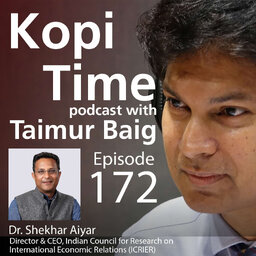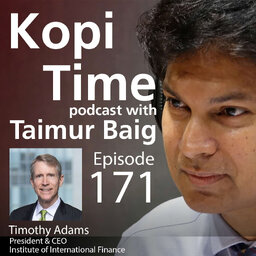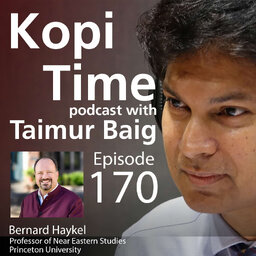Kopi Time E153 - Prof Danny Quah on the Fracturing World Order
Prof Danny Quah, Dean of LKY School of Public Policy at the National University of Singapore, returns to Kopi Time to share his insights on the dangers and opportunities stemming from the changing world order. We go over two of his recent pieces; first, an open letter to the US president (penned before the US elections last November, and second, a research paper on the correlation between global trade and geopolitics. Prof Quah dissects the great power rivalry through (i) the perception of win-win versus zero sum and (ii) a tendency to attribute domestic welfare shortfalls (blue collar jobs, health, education, safety) to external factors (trade, immigration, defence spending). He then points out that trade liberalisation and the politics of global engagement have gone hand in hand on the way up (say, from the 1960s to 2010) and down (the past decade and a half). We then discuss a key point—the US shying away from globalisation or green transition does not doom those dynamics. There is a huge world of trade and GDP outside the US. The world is not being swayed; rules and agreements among the rest are proceeding, with the window left open for the US to return one day.
In 1 playlist(s)
DBS Economics & Strategy
Social links
Follow podcast
Recent clips

Kopi Time E172: ICRIER head Shekhar Aiyar on key aspects of India’s outlook
51:26

Kopi Time E171 - IIF's Tim Adams on the Fed, US Fiscal, & Financial Stability
50:02

Kopi Time E170: Bernard Haykel on foreign policy in the Americas and the Middle-East
57:06
 DBS Economics & Strategy
DBS Economics & Strategy